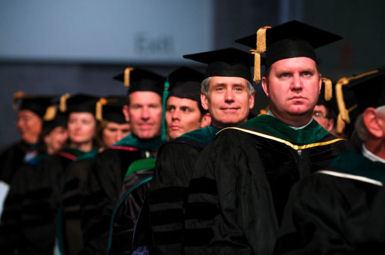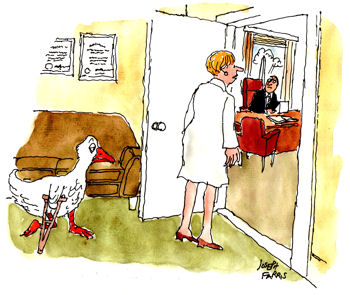A passion for primary care and politics at Internal Medicine
Internists often ask me what it will take to restore primary care in the U.S. Even more important than policies, strategies or tactics is having the passion to create great change.
Internists often ask me what it will take to restore primary care in the U.S. One answer is to review the specific policies that need to be addressed, such as poor reimbursement and high student debts. Another is to discuss the strategies and tactics required, such as building coalitions with influential stakeholders and getting ACP's message out to the press. I have written about these in prior Washington Perspective columns.
Even more important than policies, strategies or tactics is having the passion to create great change. Passion is the difference between campaigns that change the world—think the civil or women's rights movements—and those that fail.
A passion for internal medicine and primary care was abundant among ACP members who lobbied their congressional representatives at Leadership Day, and those who swarmed policy experts pitching their candidate's proposals during Internal Medicine 2008.
Taking the message to Congress …
Leadership Day is ACP's annual program to bring ACP members to the nation's capital to urge lawmakers to support the College's public policy agenda. Over 500 internists and medical students attended Leadership Day 2008, the highest attendance ever. Many were newcomers, with an especially impressive showing by medical students, associates and young physicians, who were teamed up with more experienced hands to carry ACP's public policy agenda to their elected representatives and senators.
More impressive than the numbers of participants was their passion.
They spoke eloquently of their love for internal medicine and of heartfelt concern over its future. Established internists spoke to members of Congress about the joy of serving as a patient's personal physician, and how dysfunctional payment policies are forcing many to leave the field. Medical students and young physicians discussed the impact of crushing student debt and low reimbursement on career choices.
The central message of the day, though, was the impact on patients of policies that undermine primary care—resulting in longer wait times for appointments, higher costs, and poorer outcomes.
Participants asked members of Congress to commit to introducing legislation, developed by ACP, to reduce or even eliminate student debt for physicians who choose general internal medicine or other primary care specialties and to reform Medicare payment polices to increase payments for services provided principally by primary care physicians.
Following their meetings, many reported that members of Congress were beginning to understand the urgency of addressing the crisis in primary care and were interested in learning more about the College's recommendations.
Leadership Day attendees were so enthralled by their Capitol Hill visits that they discovered a new passion—engaging in politics as a way of changing policy. One ACP member wrote “I truly enjoyed the experience. As a young internist, I appreciated this first introduction to politics and health, and I am inspired to continue work in this area in the future.”
… and to presidential candidates
Internists' passion was also on display at a scientific program session featuring health policy experts associated with Senators Hillary Clinton, John McCain and Barack Obama.
The advisers spoke to a standing-room-only crowd of several hundred ACP members about how the candidates proposed to ensure access to health insurance and primary care. (For a continuously updated analysis of where the candidates stand on primary care and other College policies, go to ACP's election tool.
Following the presentations, ACP members lined up six or seven deep at the microphones to challenge the candidates' experts on issues such as health insurance. Several internists observed that expanding access to coverage will not ensure access to care if there are not enough primary care physicians available to take care of the newly insured.
At times the session took on the tone of a political rally, with loud audience applause for salient points made at the microphones accompanied by hoots of disapproval for responses that the audience deemed inadequate. So many ACP members wanted to be heard that 15 minutes was added to the program to allow more time for questions and comments, and even then, many were left standing at the microphones when the session was brought to a close. At the end of the session, the candidates' advisors were swarmed by dozens of internists who wanted one more chance to convey a message back to the candidates about the need for them to address the crisis in primary care.
The internists attending Leadership Day and Internal Medicine 2008 arrived in Washington with a career-long passion for internal medicine. Many left with a newfound passion to engage in political lobbying to push for policies that would restore the prominence of primary care in the U.S.




